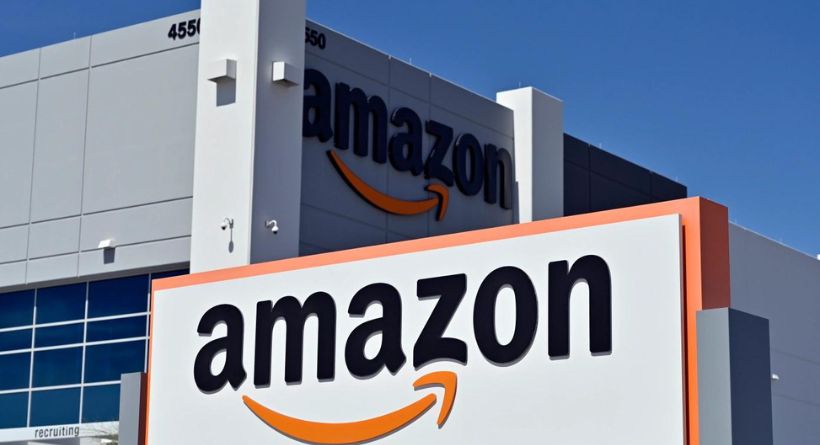
Business Insider stated that after Amazon’s $3.9 billion purchase of One Medical, the business will expand its offering to include mental health services. Despite those doubters who worry about Amazon’s privacy history in relation to healthcare, others believe the company’s actions might be advantageous for the sector.
The digital giant first entered the healthcare industry when it purchased the online drugstore PillPack in 2018 and then changed its name to Amazon Pharmacy. Additionally, the business offers Amazon Care as a mechanism for people to get healthcare in certain states.
Even while those initiatives seem to be paying off, Amazon also had a failed project with Berkshire and JPM called Haven that was abandoned due to several internal problems.
Despite the ups and downs, Amazon said in a press statement announcing the purchase of One Medical that it intends to raise the standard of treatment for all patients:
We believe that among the experiences that need innovation, health care ranks highly. We see many opportunities to both improve the experience and give people back valuable time in their days. For example, scheduling an appointment, waiting weeks or even months to be seen, taking time off from work, driving to a clinic, finding a parking spot, waiting in the waiting room then the exam room, and then making another trip to the pharmacy are all situations where we see time for improvement.
In a manner, the purchase might drive demand now that Amazon has its own means of pharmaceutical distribution since the corporation can now connect with suppliers in other areas.
Deena Shakir, a partner at Lux Capital, believes that Amazon’s action demonstrates the importance of healthcare for top tech businesses.
Shakir told TechCrunch via email that the transaction “underscores the significance that Big Tech is putting on healthcare and the relevance of omnichannel/hybrid (brick-and-mortar in addition to virtual) as well as tech-enabled services.” It demonstrates that there are worthwhile exit possibilities for firms even in a downturn or frosty IPO market since it is a better multiple/comp than what is currently being seen in the public markets.
However, Forward Health’s founder Adrian Aoun said he wishes Amazon had done more.
You’re simply aiming low, taking literally the most remarkable IT firm in the world, he added.
San Francisco-based One Medical serves about 790,000 patients and offers services in 16 regions, but according to Aoun, Amazon needs more than that. He told TechCrunch that Amazon needs to align itself with the proactive rather than the reactive approach to healthcare.
Aoun said that what Amazon did was align with the completely incorrect motivation. We’re going to concentrate on keeping you at work, not keeping you alive, they simply said.
Aoun noted that the business has to be creative despite the internet giant’s desire for it to increase its own offerings.
Aoun said that Amazon had recently committed “what I would say is one of the classic blunders in innovation.” The old world is being rebuilt, they say. They are not making an effort to innovate and create a new universe. I don’t think this will do much that much if you’re not truly going to innovate.
Even though it is reported that Amazon is purchasing One Medical, their on-demand treatment has not yet gone live. The product would be distributed via Amazon Care and was a method for the corporation to boost its healthcare business, according to Insider, which broke the news of the launch.
Shakir and Aoun concur that the growth of Amazon is increasing the pressure on entrepreneurs and investors to join the market with more potent products.
Healthcare is unquestionably a huge business potential, and the epidemic has highlighted its many inefficiencies and dependence on technology, according to Shakir. “Now that Amazon has entered the market, a wonderful customer experience will be essential and not simply great to have. While Big Tech will always be a significant part of the healthcare ecosystem, early-stage entrepreneurs that can scale alongside Big Tech are more likely to produce breakthrough innovations.
It won’t be necessary to stay up with Amazon, according to Aoun, who instead advised finding innovative methods to operate in the market.
“This really gives other companies greater opportunities because Amazon will be diverted by a plan that, to be honest, won’t work very well. You now have a tonne of chances for everyone else to start participating, he added.
In light of recent occurrences, some have raised concerns regarding patient personal data as Amazon starts to expand the scope of its healthcare services.
As a result of stories implying that Talkspace and BetterHelp may be sharing data with Meta and Google, the U.S. Senate earlier this year requested clarification from these providers of mental health apps about their data gathering and sharing practises.
Shakir argued that Amazon must comprehend the market and acknowledge the “complex connection with healthcare” that Big Tech firms have.
One of the difficulties in developing a product for the healthcare industry, according to the expert, is that it must adhere to a number of regulations, including HIPAA, billing codes, EMR interoperability, and others. When inventing inside a big firm with its own stakeholders and conflicting agendas, this may be very difficult.
Apple and Google, two more digital behemoths, have also entered the healthcare industry.
Despite not purchasing any businesses, Apple has worked with a number of healthcare organisations to provide medical practitioners access to patient biometric information obtained by an Apple Watch. A patient may regulate their medicine intake, track their heart rate, and download applications to assist with newborn care, to mention a few things.
Google, on the other hand, has placed more of an emphasis on the medical research side of things. They have been able to advance Fitbit features, give information on suicide, and broaden study into digital well-being via collaborations with institutions.
Larger firms concentrating on the healthcare sector may crush new entrants, but it may also encourage startups to investigate areas of the market that haven’t received much attention in the past but may result in big gains for both payers and patients.







